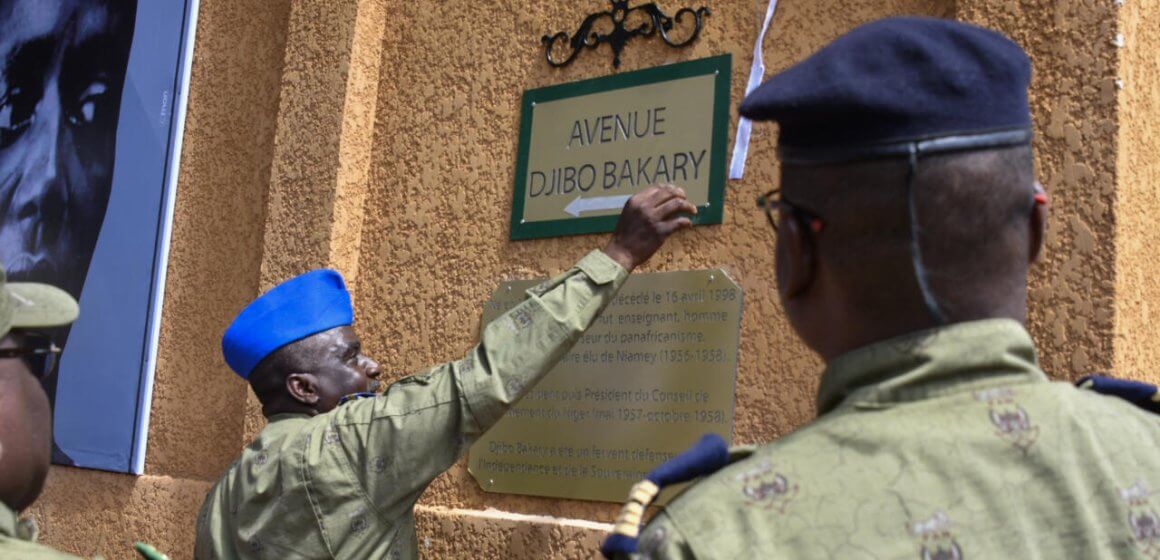|
LISTEN TO THIS THE AFRICANA VOICE ARTICLE NOW
Getting your Trinity Audio player ready...
|
Niger’s military government Tuesday renamed streets and monuments in the capital, Niamey, stripping them of French colonial names and replacing them with those of local heroes.
This renaming campaign is the latest effort by Niger to distance itself from its former colonial power, France, and reshape its relationship with the West.
One of the most significant changes is the renaming of the prominent Avenue Charles de Gaulle, which now honors Djibo Bakary, a Nigerien politician and key figure in the country’s independence movement.
This shift is symbolic of Niger’s efforts to erase the reminders of colonial oppression and highlight the contributions of its own leaders in the fight for sovereignty.
“Most of our avenues, boulevards, and streets bear names that are painful reminders of the suffering our people endured during colonization,” said Maj. Col. Abdramane Amadou, a spokesperson for the ruling military junta. The renaming initiative is part of a broader campaign to revive Niger’s national pride and reclaim its history.
The relationship between Niger and France has been tense since President Mohamed Bazoum was ousted in a military coup last year. Niger, like neighboring Mali and Burkina Faso, has since turned to Russia for military support in the face of a growing jihadist insurgency.
The three countries have formed the Alliance of Sahel States, a regional military bloc aimed at addressing security challenges in the Sahel region.
Before the coup, France had stationed over 1,500 troops in Niger as part of its counter-terrorism efforts to combat jihadist groups linked to al-Qaeda and Islamic State. However, by the end of last year, all French troops were withdrawn from the country.
On Tuesday, a ceremony was held in Niamey to commemorate the renaming of various landmarks, including a war memorial that once honored French soldiers who died in World War I and World War II. The monument has now been rededicated to “all civilian and military victims of colonization to the present day,” marking a significant shift in Niger’s historical narrative.
One of the most striking changes in Niamey is the transformation of a stone monument that previously featured an engraving of French colonial officer and explorer Parfait-Louis Monteil. His likeness has now been replaced by a plaque honoring Thomas Sankara, the revolutionary leader of Burkina Faso. Sankara, a charismatic pan-Africanist and staunch anti-imperialist, was assassinated in 1987 but remains a symbol of resistance to foreign influence in Africa.











LEAVE A COMMENT
You must be logged in to post a comment.